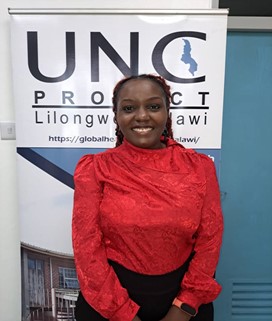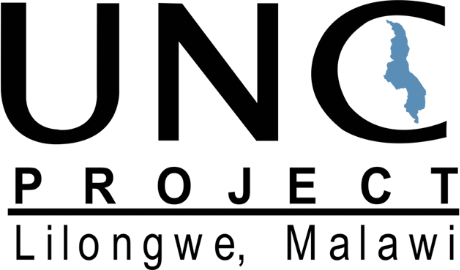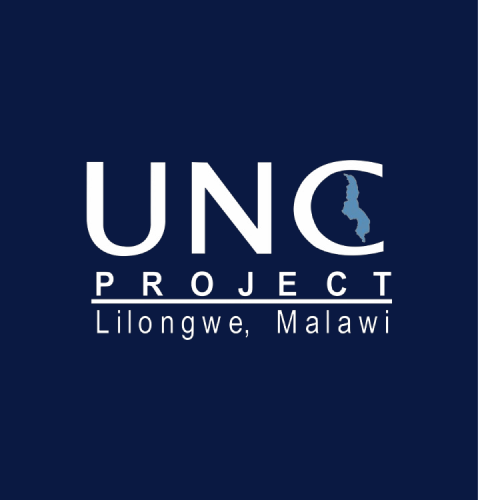About Us

About M-HIRST
The Malawi HIV Implementation Research Scientist Training (M-HIRST) program has successfully built the foundation for implementation science at Kamuzu University of Health Sciences (KUHeS) since its inception in 2015. Through integration of implementation science training into the Master’s in Global Health Implementation and establishing Implementation Science as a research theme for COM, the project has laid the foundation for a pipeline of IS researchers at masters, doctoral, and post-doctoral levels. The majority of our alumni go on to work in faculty and research positions at KUHeS and UNC Project-Malawi. This emerging multi-level group of implementation scientists will ensuring sustainability of IS teaching and research programs at KUHeS and in Malawi.

Our History
Since 2015, the National Institutes of Health-Fogarty International Centre in the USA has been funding the Kamuzu University of Health Sciences (KUHeS) and University of North Carolina to establish and roll-out the Malawi HIV Implementation Research Scientist Training (MHIRST) Program which aims at building and strengthening local capacity for designing and conducting research studies to generate evidence that accelerates the scale up of evidence-based HIV interventions. MHIRST introduced the developing discipline of Implementation Science (IS) to Malawi through the then University of Malawi College of Medicine (CoM). Over the period 2015 – 2020, MHIRST established a core group of Implementation Scientists providing a platform to launch new IS research, establish an IS thematic area within the School of Global and Public health, and embed IS training into the recently launched Master’s in Global Health Implementation and the Research Support Centre. However, due to continued evolution of the Malawi HIV program, the need for implementation scientists has outpaced our development of faculty.
Our Present
The CoM is now known as the Kamuzu University of Health Sciences (KUHeS) following a merging of universities with the Kamuzu College of Nursing (KCN) and it is a comprehensive health and allied sciences higher learning institution with the primary function of training health workers. Its mission is “to be an academic centre of excellence in the training of doctors and other health professionals in clinical service and medical research, responsive to the health needs of Malawi and its neighbours within the Southern African region”. The MHIRST seeks to capitalize on this mission by expanding the pool of junior faculty with IS research skills; strengthening the implementation research skills through research support, mentorship and internships; and providing short course programs in IS disciplines.
MHIRST currently offers training opportunities in the form of Master’s fellowships, PhD fellowships, mentored research fellowships, small pilot research grants, internships at our partner organizations and scholarships to attend short courses in IS, health economic evaluation, grant writing, geospatial modelling and mapping, digital health, quality improvement, leadership, data analysis and manuscript writing.
Our Vision
By the end of this grant award, MHIRST expects to have independently funded Malawian investigators capable of multidisciplinary research to lead the Malawi HIV treatment and prevention implementation science agenda and mentor the next generation of research scientists.
Our Leadership Team
Project Implementation Team
We will train additional faculty at now Kamuzu University of Health Sciences (KUHeS) with the addition of the former Kamuzu College of Nursing faculty. Our goals are to support an additional 4 PhD and 6 Master’s candidates, and engage 12 junior faculty at KUHeS, Ministry of Health and research partners through structured leadership training, career development grant writing, and protected research time. Our IS internship program will partner with PEPFAR implementing partners to place 12 trainees in mentored research environments to gain practical experience. Our iterative short course program is designed to train both new course faculty and trainees and will include advanced IS topics including mHealth, Economic Evaluation of Health Programs, Quality Improvement, Spatial Modeling for Health impact, and career development grant writing. Trainees participating in any part of our program can apply for mentored grants (up to 15 grants) to support their research.By the end of the award, we expect to have independently funded Malawian investigators capable of multidisciplinary research to lead the Malawi HIV treatment and prevention implementation science agenda and mentor the next generation of research scientists.

Successful Fellows
Senior Fellows & Mentored Research Grants:
- Maganizo Chagomerana is now co-investigator on the program, and is an assistant professor at UNC-Chapel Hill.
- Cecilia Kanyama is faculty at UNC-Chapel Hill, and is the PI of an R21 focused on adaptation of the transition of care model for post-discharge HIV-NCD care in Malawi.
- Kazione Kulisewa is currently the Chair of the Dept. of Psychiatry at KUHeS, and is co-PI/PD on the WARMHEART D43, a training program that aims to build mental health research capacity in Malawi through mentored research and clinical training.
- Friday Saidi is an assistant professor of Ob/Gyn at UNC-Chapel Hill.
- Maggie Nyang’wa is a clinical lecturerer in pediatrics at KUHeS.
PhD students
- Mitch Matoga
Masters students
Pilot grants
Data Interns
- Tisungane Mvalo currently an associate professor of pediatrics at UNC-Chapel Hill
Goals and Objectives
The M-HIRST D43 aims to
- expand the pool of junior faculty to conduct implementation research
- strengthen the research skills of current junior faculty through research support and mentorship to place talented faculty into faculty positions
- provide short course programs in implementation science disciplines to achieve completed, published manuscripts over a 12- to 18-month period.
MHIRST Success Stories
TRAINEE SPOTLIGHT

The UNC Project team
The UNC Project team (mostly made up of MHIRST past and current trainees) that won the PRISM grant; a 5-year grant that will look at preventing infant infections with implementation science in Malawi. From left to right: Dr. Maganizo Chagomerana, Dr. Friday Saidi, Prof. Mina Hosseinipour, Dr. Lameck Chinula, Dr. Mitch Matoga, Dr. Agatha Bula.
TRAINEE SPOTLIGHT

Covid Small Pilot grant trainees
One of our Covid Small Pilot grant trainees, Dr. Rachel Kanyenda-Chamanga presented her MHIRST funded research work at the INTEREST 2023 Conference in Maputo, Mozambique and was one of the winners of the Joep Lange and Charles Boucher award.
TRAINEE SPOTLIGHT

Dr. Alinane Linda Nyondo-Mipando
Dr. Alinane Linda Nyondo-Mipando started off as a mentored research fellow on the MHIRST Project in 2016 when she was just a lecturer in the health systems and policy department at the Kamuzu University of Health Sciences. She has since achieved so many big milestones in her academic career; she was recently promoted to Associate Professor and has mentored several upcoming Implementation Science researchers and has many Implementation Science publications to her name. She has also been co-principal investigator of 12 grants with completed projects and 4 ongoing ones. Her passion lies on improving the delivery of health services through Implementation Science.
TRAINEE SPOTLIGHT

Dr. Maggie Nyirenda-Nyang’wa
Dr. Maggie Nyirenda-Nyang’wa graduated with her PhD in Global Health at the University College London in 2023. Part of her PhD work on diagnostic tests for HIV detection in children in Malawi was funded by MHIRST and she continues to leave a mark in implementation science research. Dr. Nyang’wa was also awarded the UJMT Fogarty Global Health Fellowship in 2021 after she attended the MHIRST Grant Writing Workshop.
TRAINEE SPOTLIGHT

Dr. Mitch Matoga
Dr. Mitch Matoga is one of our dedicated faculty members on the MHIRST program. He was first awarded the MHIRST Master’s fellowship in 2016 where he completed his MSc at the University of the Witwatersrand. He was later enrolled in the PhD program in 2019 and awarded the Covid Small Pilot grant in 2020. He is the team lead for our Quality Improvement course as well as mentor to a number of junior MHIRST trainees. His work on VMMC, HIV and STIs has attracted numerous awards and external grant funding.
TRAINEE SPOTLIGHT

Brany Mithi
Brany Mithi is our newest upcoming implementation science researcher. He started off as an MHIRST intern posted at the Elizabeth Glaser Pediatric Foundation (EGPAF) in 2021 followed by a Master’s fellowship in Epidemiology at the Kamuzu University of Health Sciences. Recently, he has been approved for MHIRST funding for a PhD at the same university. His work is on advanced HIV disease diagnostics and integrating HIV self-testing services and HIV risk behavior change.
TRAINEE SPOTLIGHT

Tawonga Mkochi
Tawonga Mkochi was awarded our MHIRST internship in 2022. She has gone ahead to achieve a commendable milestone by being a principal investigator for the Coalition for Implementation Research in Global Oncology (CIRGO) Implementation Research Grant. The title of her research project is Assessing the Impact of delivering a Mobile phone friendship bench intervention among women with cervical cancer and mild or moderate depression in Lilongwe, Malawi. The grant was awarded in 2023 with a Project Duration of 12 months and a Grant amount of 50,000 USD.
TRAINEE SPOTLIGHT

Cecilia Kanyama
Cecilia Kanyama, one of our senior researchers was awarded her own NIH R21 research grant in 2023 as the principal investigator for a project titled Adaption of the Transition of Care Model for Post-discharge HIV-NCD Care in Lilongwe, Malawi. The Project Duration is 2 years with a grant amount of 353,000 USD.

